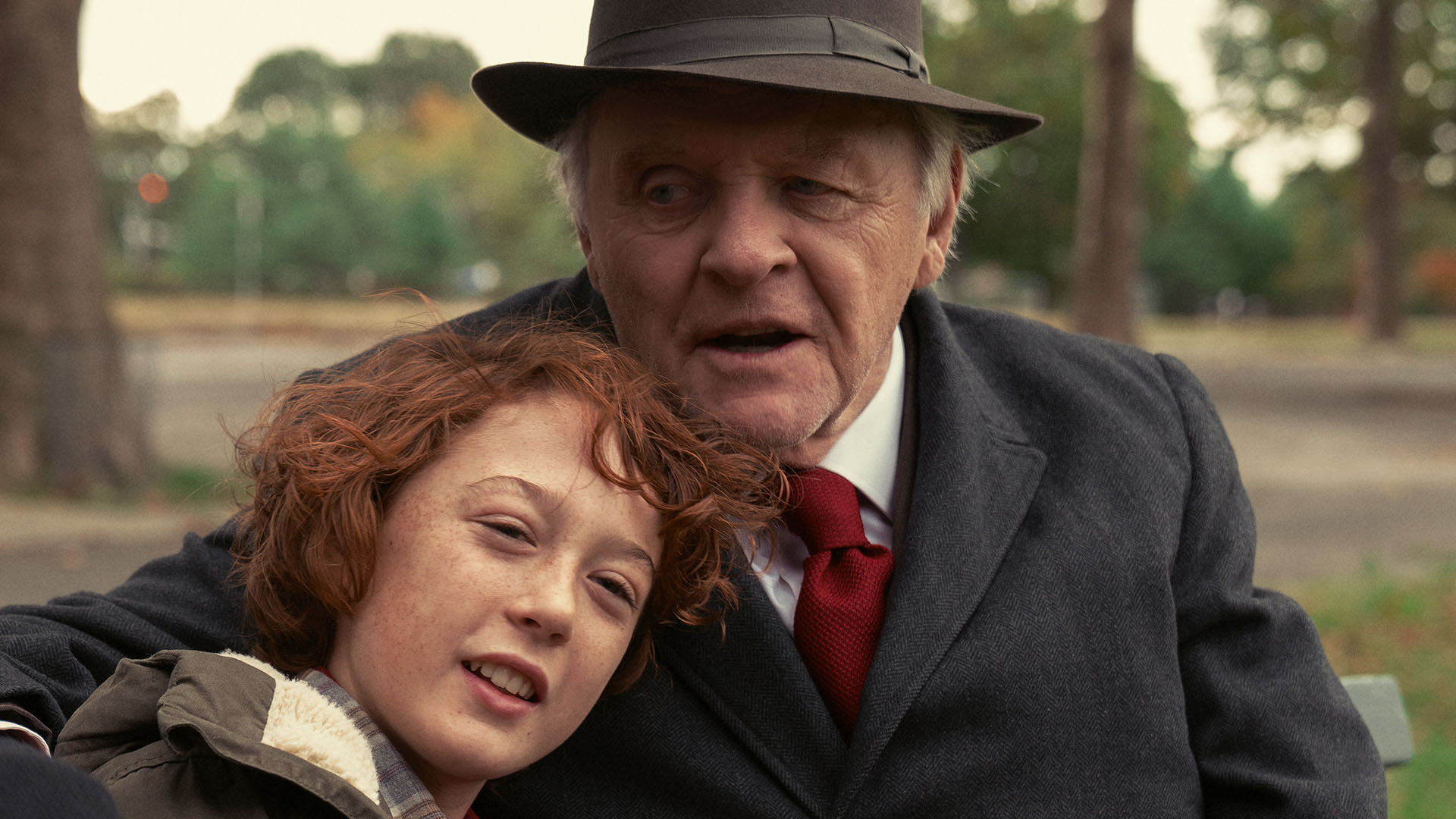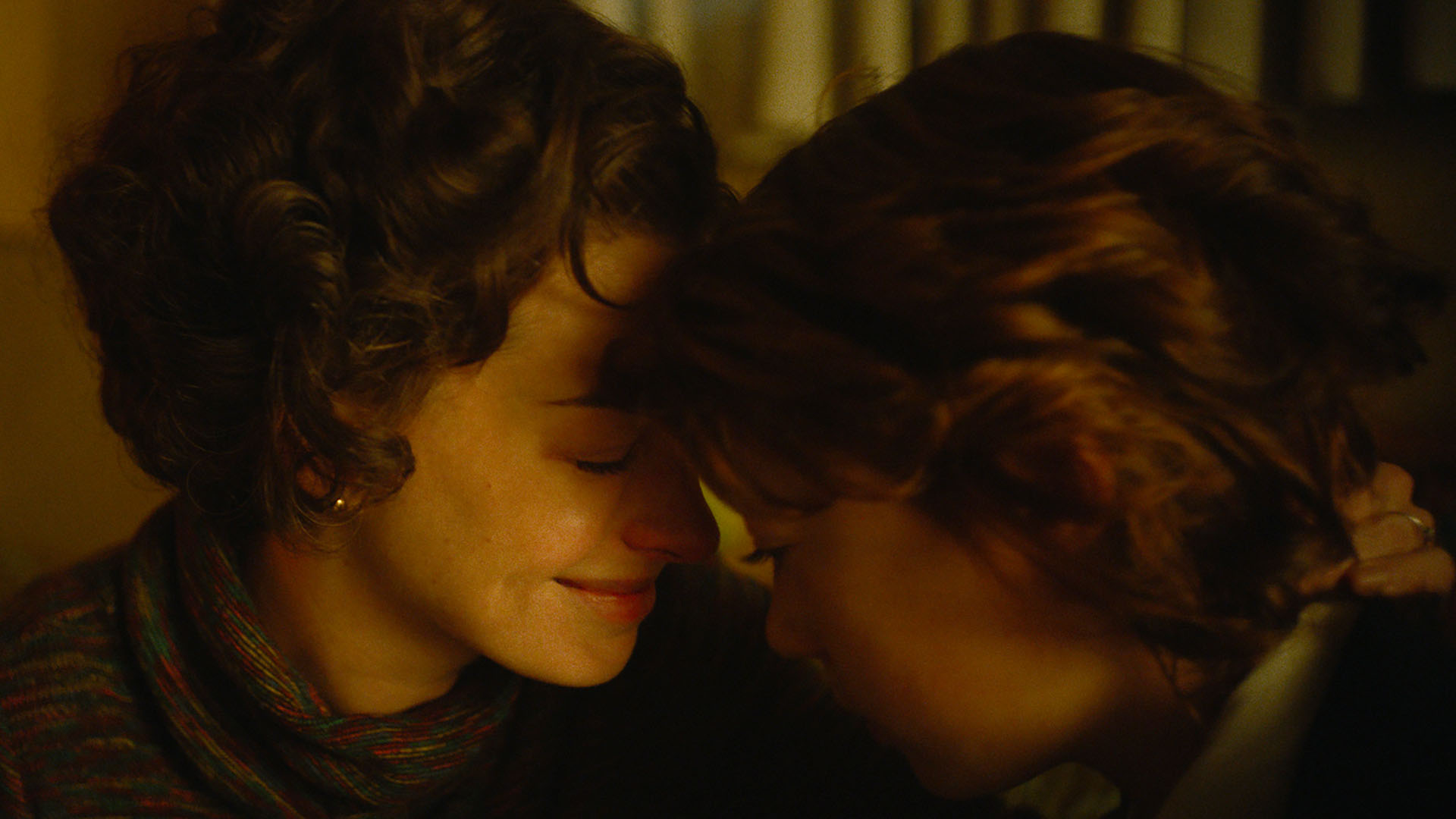Who knew the end days could be so dull in Armageddon Time?
James Gray’s all-star ensemble feels as if it’s stumbling through the first table read.

James Gray’s semi-autobiographical tale struggles to hold attention, even with a starry cast (including Anthony Hopkins, Anne Hathaway and Jeremy Strong) says Stephen A Russell.
Every now and then, an actor turns up halfway through a film and pulls the rug out from everyone else who has shown up on screen so far. In the turgid morass of empty tedium that is Ad Astra director James Gray’s inexplicably Palme d’Or-nominated feature Armageddon Time, that person is Jessica Chastain.
Pretty much on the dot, she rocks up unexpectedly in a screen-igniting purple dress as Donald Trump’s older sister Maryanne. She delivers a rousing pep talk to private school pupils, including newly arrived Paul Graff, Gray’s stand-in here as played by Banks Repeta. Maryanne insists that if the students apply themselves in these hallowed halls, it will prove that they earned their coming-soon high station in life. That nonsensical Trumpian privilege is packed with convincing punch by Chastain in a film that’s suddenly far more interesting. Sadly, however, her one-scene cameo lasts all of a minute. Maybe two.
It’s the turn of the ’80s, with Californian governor Ronald Reagan popping up on TV screens in the background, in full campaigning mode on his inexorable charge towards ultimately claiming the White House. We hear him bring up Armageddon as a very real possibility in these Cold War days. Just in case that flew over your head, Gray deploys The Clash song that lends its name to the movie title towards the tail end of this very obvious movie.
The extended Graff family includes Anne Hathaway as Paul’s mother Esther, Jeremy Strong as his prone-to-explosion father Irving, and Anthony Hopkins as his doting grandfather Aaron. They collectively shudder at Reagan’s rise. But Irving can fly off the handle and get violent with the pushy Paul, who thinks nothing of critiquing his mother’s cooking at the dinner table and then sneaking off to order dumplings. A move that prompts Irving to snap a racial slur.
Paul’s parents aren’t too keen, either, that he befriends Johnny (Jaylin Webb), a young African American kid who regularly and unfairly attracts the ire of their teacher Mr Turkeltaub (Andrew Polk). Despite both proclaiming they have no issue with race, Esther and Irving whip each other up into a panic about Johnny that slips out in several “I’m not racist, but…” moments. Meanwhile, an ageing Aaron startles Paul at bedtime with stories of why his great-grandparents had to flee Ukraine during WWII, winding up as refugees clamouring on the shores of Ellis Island.
If Gray’s screenplay and direction were more assured, this could be a fascinating examination of the long scars of inherited trauma. Of how the supposedly egalitarian promise of the American Dream forces one persecuted minority to pick on another just to shore up their shaky position in an odious hierarchy of acceptability. But it’s all so heavy-handed and simultaneously half-hearted, with Webb mostly sidelined by the less-engaging Graff family story, which fails to get into the weeds of pervasive antisemitism too.
Chastain’s scene-stealing moxie punctuates the perfunctory performances on show here. None of the dialogue feels natural, and is morosely delivered in a weirdly catatonic style by an ensemble that feels as if it’s stumbling through the first table read. Even Oscar-winning heavyweight Hopkins struggles to imbue his stock standard kindly gramps role with the requisite nawww-factor. Hathaway is particularly unconvincing in a thinly sketched character more or less defined by ‘is in the parent-teacher association’. Strong’s mumbling turn is a far cry from his excruciatingly excellent run as the hapless Kendall Roy in Succession.

Unfortunately, given that he enjoys the lion’s share of screentime, Repeta, (who was much better in The Black Phone) is the weakest link here. He doesn’t yet have the necessary acting chops to navigate more complicated stuff. Namely, Paul’s conflicted desire to embrace his new (seemingly only) friend Johnny while also seeking the easy life when he does wind up at the posh school—Esther insists on pulling him out of public when the young lads are caught smoking a spliff.
Uncut Gems cinematographer Darius Khondji valiantly attempts to cut through the lethargy with occasional zoom shots and handheld rumbles, but it’s nowhere near enough and undermined by Christopher Spelman’s treacly score. The buck stops with Gray, though. Slouching towards the two-hour mark, his film is staggeringly disconnected for one so obviously personal. It’s a real chore compared to Paul Thomas Anderson’s similarly themed, if opposite coast-set, Licorice Pizza. By the time a thoroughly signposted scene involving a toy rocket turns up, you can’t help but wish this really was the end of this movie’s world.


























